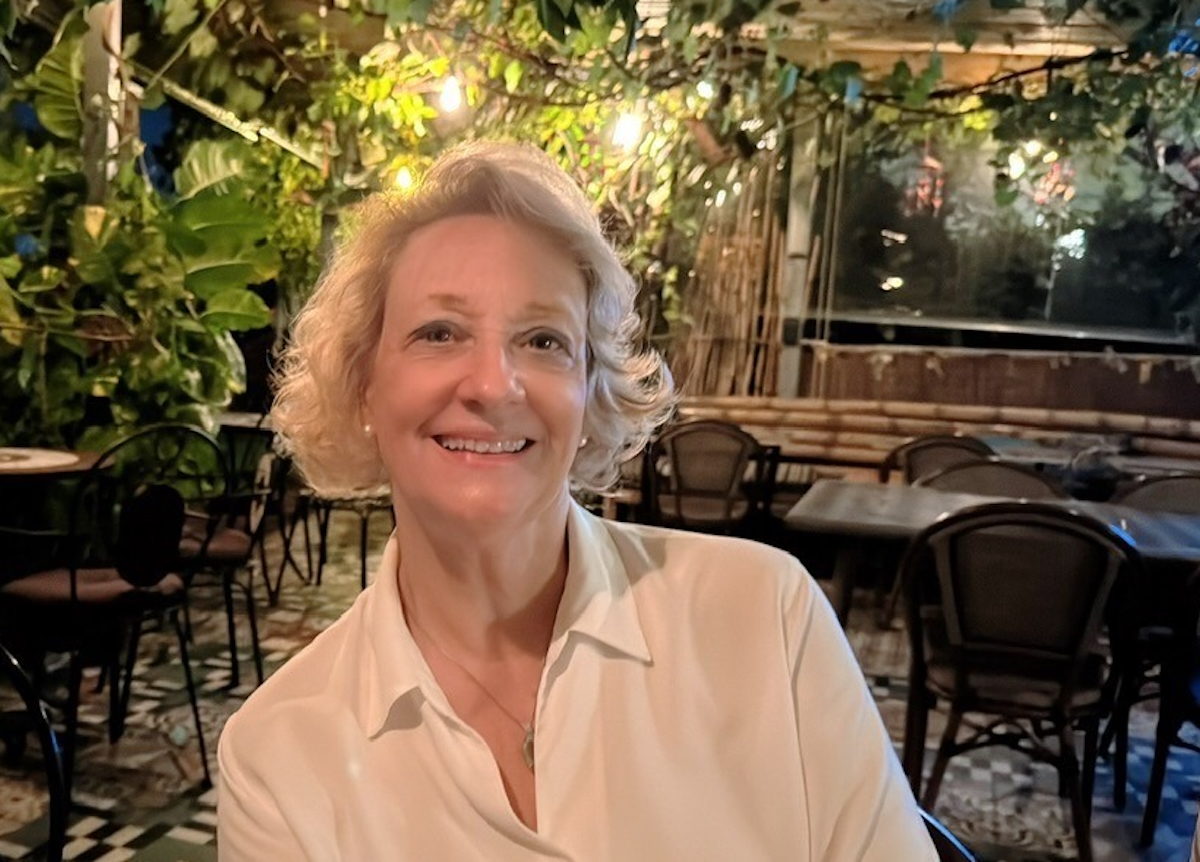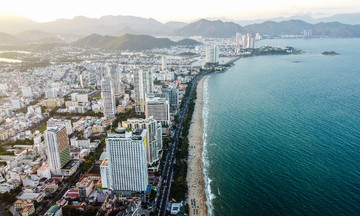Before coming to Vietnam, the couple had worked for the pharmaceutical company Novartis in the UK and Poland, for over three years in each location. They envisioned a nomadic life, moving between cities around the world. However, Ho Chi Minh City disrupted their plans.
After just two months, the couple fell in love with Ho Chi Minh City. They found Thao Dien Ward to be a "miniature international village" that still retained the charm of Vietnam. They enjoyed the ease of hopping on a motorbike for dinner, visiting a roadside cafe, or dining at a luxurious restaurant without reservations or worrying about the cost. The year-round warm weather and open spaces were also appealing.
While her husband worked, Joke Otter van Zuijlen travelled, played golf and tennis, joined a women's club, and engaged in charitable activities. She visited an orphanage twice a week.
"It's easy to live here, affordable, and the people are friendly," Joke Otter van Zuijlen said. "My husband and I both realized Ho Chi Minh City is a land of opportunity."
In 2006, they opened a kindergarten with 100% foreign investment, solidifying their lifelong commitment to the city.
 |
Joke Otter van Zuijlen at a restaurant in Thu Duc, Ho Chi Minh City, 8/2025. Photo courtesy of the interviewee |
Joke Otter van Zuijlen at a restaurant in Thu Duc, Ho Chi Minh City, 8/2025. Photo courtesy of the interviewee
Without children, and with their parents in the Netherlands having passed away, the couple considers Ho Chi Minh City their home. Joke Otter van Zuijlen has embraced Vietnamese culture by reading extensively about its history and traditions. Her understanding of Vietnam is so profound that her staff say she knows more than they do.
The couple enjoys conversing with street vendors, sanitation workers, and anyone they encounter. "We respect everyone because they are always kind," she said.
Currently, Joke Otter van Zuijlen and her 68-year-old husband, Wieger, have no plans to leave Ho Chi Minh City. Their biggest wish is for Vietnam to develop retirement communities with comprehensive healthcare and transportation services, similar to those abroad, so they can enjoy their remaining years with peace of mind.
The couple is among many foreigners who have chosen to make Ho Chi Minh City their long-term home. According to the "City Pulse 2025: The Magnetic City" survey published in June by the Gensler Research Institute (USA), the city ranks second globally in its ability to retain international residents. Over 61% of foreigners surveyed expressed no intention of leaving. Cities like Singapore, Sydney, and Berlin all ranked below Ho Chi Minh City.
The survey, based on responses from 33,000 residents in 65 cities, explored the reasons behind their choice of residence and future urban design preferences.
Guillaume Rondan, director of Move to Asia, a company specializing in assisting foreigners with settling and investing in Asia, attributes Ho Chi Minh City's appeal to its dynamic business environment, reasonable cost of living, and modern lifestyle.
The city boasts a strategic location in Southeast Asia, a growing middle class, and a high-quality workforce with competitive costs in sectors such as technology, manufacturing, and logistics.
Compared to major cities like Singapore, Shanghai, or Kuala Lumpur, the costs of rent, food, and healthcare in Ho Chi Minh City are lower while maintaining good quality.
"Ho Chi Minh City has a young, ambitious, and innovative population, and a unique blend of modernity and tradition," he observed. "Few cities in Vietnam possess these qualities."
According to MovetoAsia's data, around 55-60% of their clients come to Vietnam with the intention of staying medium or long term, often starting businesses, applying for temporary residence cards, or seeking investment opportunities. The rest primarily undertake short-term projects such as sourcing or market research, with many subsequently returning for longer stays.
Among those who have lived in Vietnam for over 24 months, over 80% choose Ho Chi Minh City as their place of residence. This choice is driven not only by personal preference but also by career opportunities, services, and international connectivity.
They appreciate the city's energy, flexibility, and "can-do" business spirit. For entrepreneurs, Ho Chi Minh City offers a balance of cost, potential, and quality of life.
 |
Marcel Lenartz at a photography event in Ho Chi Minh City, 3/2025. Photo courtesy of the interviewee |
Marcel Lenartz at a photography event in Ho Chi Minh City, 3/2025. Photo courtesy of the interviewee
Marcel Lenartz, a Dutch engineer, is one such individual. He first visited Ho Chi Minh City in 8/1992 on the recommendation of several Vietnamese friends. In 1995, he returned for an internship, intending a short stay, but ended up staying for 30 years.
"The people are the key factor," he said. Marcel recalls cycling in Can Gio, covered in mud and sweat, when he came across a farmers' wedding. They saw him and invited him to join the celebration. Marcel felt too dirty and declined, but they insisted he share a beer with them.
"Ho Chi Minh City residents, regardless of age or background, are cheerful and approachable, something I didn't find in Europe," he said.
That same year, Marcel chose to live with a Vietnamese family instead of in the expat housing arranged by his company. This experience deepened his connection to Ho Chi Minh City, providing him with an authentic taste of local life, from bathing with a dipper to enjoying home-cooked meals.
Over three decades, Marcel has proudly witnessed Vietnam's development and contributed in various ways, from participating in the construction of the Saigon Water Park in 1997 to working with early software outsourcing and architecture companies, and supporting the local running community.
While his peers plan their retirement in Da Nang, Hoi An, or Japan, Marcel remains committed to Ho Chi Minh City.
"I never have a boring day here; every day brings something new that surprises and delights me," he said.
Ngoc Ngan












